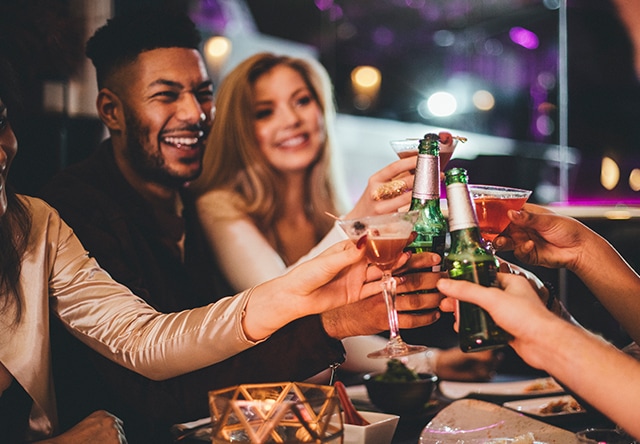Liquor Liability
Liquor Liability is a complex coverage and there are numerous variables that are considered when pricing and structuring a policy. Liquor Liability laws differ by every state -from the most strict in liability (Alabama) to very little liability (Nevada). There is also a wide range of venue types – from restaurants to nightclubs to concerts. Each have specific risk characteristics that need to be addressed.

You could be held liable for injuries caused
by a patron who drank at your
establishment.
The Purpose of Liquor Liability
The principal idea of liquor liability insurance is to protect a licensed purveyor of alcoholic beverages from third party liability. Liabilities for these establishments share some common characteristics. Typically, liability arises when a venue over-serves, serves minors, serves a known drunk, or serves an individual who is involved in a drunk driving incident after he or she was served on premises. Venues with higher alcohol to food ratios also have significant exposure to assault and battery claims from either employees being overly rough with patrons or patrons assaulting other patrons.
Type of Venue
The most basic way of looking at risk factors for different venues is simply to identify what the primary purpose of the venue is – whether it is a restaurant, bar/tavern, nightclub, concert, and so on. If a restaurant’s primary purpose is serving food in a sit-down environment, it is considered to be much less risky than a nightclub with a primary purpose of entertainment and dancing. A bar/tavern may provide a mix of both, which places its risk factor in between a restaurant and a nightclub.
Location of Venue
State liquor laws vary dramatically by venue and jurisdiction. States each have their own basic scoring system based on the punitive nature of their dram shop law. Simply put, dram shop laws are laws that impose certain liability standards on the venues that serve alcohol. Every underwriter will want to know what controls are in place and how the operation is run by management.
Percentage of Liquor Sales
Further complicating liquor liability coverage is the percentage of alcohol sales; as would be expected, more liquor sales equate to higher premiums. A restaurant with a high percentage of alcohol sales may be classified as more of a bar. A bar with a dance floor plus high liquor sales may be classified as a nightclub.
Individual Traits of the Risk
- What types of entertainment are on premises - live music, karaoke, DJ?
- What is the average age of patrons; what is the proximity to a college?
- What is the experience level of management?
- What are the formal controls or loss prevention procedures?
- Is security a third-party vendor with separate limits of insurance, or the venue’s own employees?
- Does the venue do background checks on employees, especially bouncers/security?
- What training does the serving staff undergo?
- Does the venue allow minors? If so, what are the control procedures?
- Are there security cameras?
- What is the procedure for dealing with intoxicated patrons?
In short, liquor liability is a complex coverage that is becoming harder and harder to procure, but with a proper insurance broker, you can effectively get the correct coverage for your risk.
Get a Quote